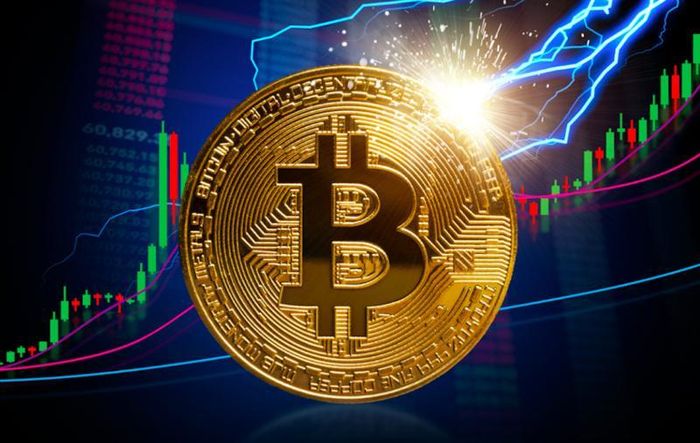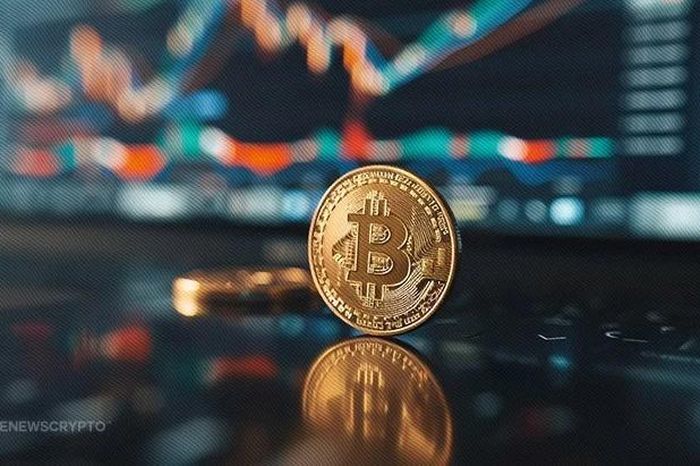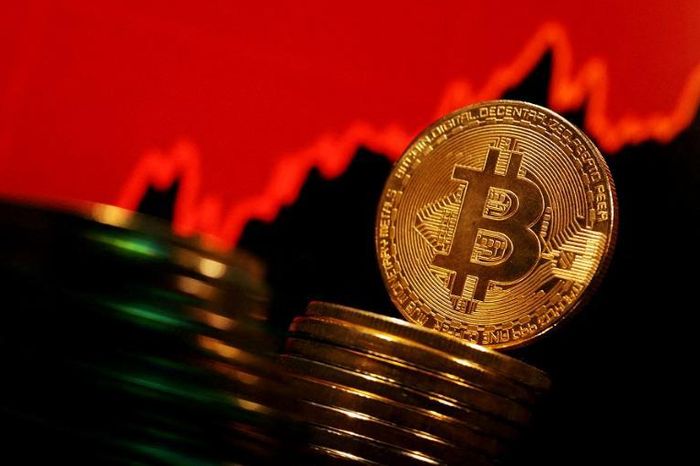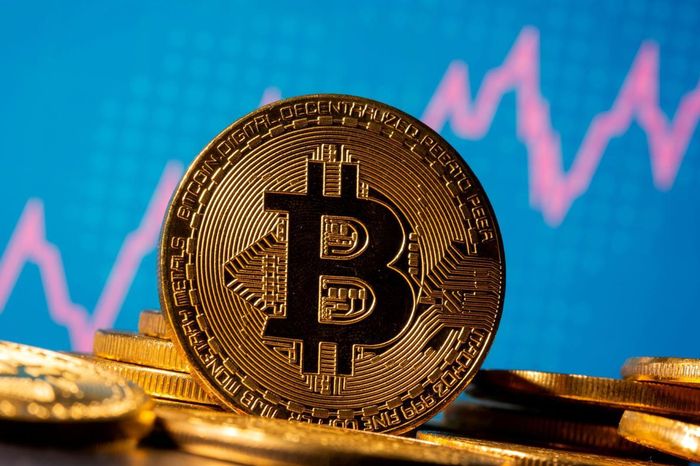What will the future of Bitcoin be?

Over the past decade, the S&P 500 and Nasdaq indexes have seen growth of 231% and 335%, respectively. However, another form of investment that has seen even greater increases is Bitcoin.
12,000% GROWTH IN A DECADE
Bitcoin (BTC) is the first and largest electronic currency (cryptocurrency) created from Blockchain technology. It is used as a means of online payment and has an independent currency, independent of any Central Bank or Government. This is also the first electronic currency in the world and has opened the way for the development of the crypto market.
Bitcoin uses a peer-to-peer network, allowing senders to transact directly with receivers without going through an intermediary. This eliminates unnecessary fees and makes each transaction much cheaper than international money transfers.
"Financial experts say it would be 'silly' to expect that in the next 10 years, the price of Bitcoin will continue to increase by 12,000%, meaning 1 Bitcoin will cost nearly 150,000 USD. The total GDP of the entire world is only reaching more than 100,000 billion USD by 2023, so this assumption seems very unlikely to happen."
For comparison, if you invested 1,000 USD in Bitcoin - the world's oldest and most valuable cryptocurrency in April 2013, the value would increase to about 121,000 USD today, equivalent to an increase of 12,000%. Converted into Vietnamese currency, if you spend 25 million VND to buy Bitcoin in 2013, investors will receive 3,078 billion VND in April 2024.
Bitcoin has grown from a digital currency to a popular global asset with a market capitalization of more than $1,200 billion. This valuation makes BTC the 8th largest company in the world.
This digital coin has seen its strongest price movements in a decade. Besides the periods of galloping growth, Bitcoin has also witnessed many periods of decline with drops of over 50%. Many critics did not hesitate to say that the value of Bitcoin would soon return to zero. However, Bitcoin continued to increase strongly after that.
This wild price fluctuation is increasingly attracting the attention of investors as more and more people learn about the decentralized characteristics and fixed supply limits of this digital currency. These are attractive characteristics that a financial asset should have.
Bitcoin's spectacular rise in price has paved the way for a financial services ecosystem that facilitates transactions more easily. Earlier this year, the US Securities and Exchange Commission (SEC) approved exchange-traded funds (ETFs), shortly after which Bitcoin prices increased 56% as of April 15. This shows growing interest in these regulated financial products.
WILL BITCOIN INCREASE 12,000% IN THE NEXT 10 YEARS?
Despite witnessing such a huge increase, financial experts believe that it would be 'silly' to expect that in the next 10 years, the price of Bitcoin will continue to increase by 12,000%, meaning 1 Bitcoin will cost nearly 150,000 USD. The total GDP of the entire world will only reach more than 100,000 billion USD in 2023, so this assumption seems very unlikely to happen.
Bitcoin's fixed supply limit will be the most attractive element of this digital currency. Globally, the total supply of Bitcoin is limited to 21,000,000 BTC coins. This number cannot be changed by anyone, including the founder Satoshi Nakamoto. As of April 2024, there have been about 19.7 million BTC mined and only about 1 million BTC left unmined.
'Bitcoin price recently fell below $64,000. JP Morgan analysts said this week they expect the price to fall further after the halving.'
And after the upcoming halving, Bitcoin's supply growth rate will be lower than that of gold. (halving is the periodic reduction of the block subsidy provided to miners). Halving helps ensure that crypto assets will follow a stable issuance rate until maximum supply is reached.
As the supply of a certain good gets lower and all else remains constant, the price will increase as people try to buy more. Therefore, technical experts believe that Bitcoin will also develop similarly.
The supply of Bitcoin to the market also largely depends on cryptocurrency mining companies, but data on inventory and supply is very scarce. If miners sell their reserves, that could put downward pressure on prices.
Since reaching a record high last month, Bitcoin price has recently dropped below $64,000. JP Morgan analysts said this week they expect prices to fall further after the halving.
The most common reason given for this year's price surge is the US Securities and Exchange Commission's approval of a Bitcoin ETF in January and expectations that central banks will cut interest rates. There is no evidence that previous halvings are what is driving bitcoin's next price rally.
Traders and miners have studied previous halvings as follows: When the last supply reduction occurred on May 11, 2020, the price increased by about 12% in the following week and 659% in The next 12 months.
But there are many explanations for this recovery – including loose monetary policy and Covid-19 restrictions that have made cash-rich investors more interested in Bitcoin. There is no actual evidence that the halving impacted the price of BTC.
A previous halving occurred in July 2016. Bitcoin rose about 1.3% the following week before crashing a few weeks later and rising again.
It is difficult to evaluate and determine the impacts of this supply reduction on the price of Bitcoin in particular and cryptocurrencies in general, so investors still need to be cautious with this type of virtual asset.
In many countries around the world, Bitcoin (as well as some other virtual currencies) are not a legally recognized means of non-cash payment. Therefore, trading Bitcoin in Vietnam is not legal and depending on the level of violation, can be subject to administrative sanctions or criminal prosecution.
Currently, there are only two countries in the world that believe that Bitcoin can be a legitimate legal currency, which are El Salvador and the Central African Republic. El Salvador's Congress passed a bill by President Nayib Bukele in 2021, officially declaring that cryptocurrencies will become a legal form of value exchange. The Central African Republic accepted Bitcoin as a legal means of payment in the second quarter of 2022, shortly after El Salvador's decision.
 Bitcoin price today April 19: Recovering to 63,950 USD
Bitcoin price today April 19: Recovering to 63,950 USD $1.72 billion in Bitcoin moved to accumulation address after losing $63,000 mark
$1.72 billion in Bitcoin moved to accumulation address after losing $63,000 mark The crazy rush of something that is increasing in price faster than Bitcoin
The crazy rush of something that is increasing in price faster than Bitcoin Why does Bitcoin FUD sentiment escalate 48 hours before halving?
Why does Bitcoin FUD sentiment escalate 48 hours before halving? Mysterious Chinese 'boss' in the largest Bitcoin laundering case in British history
Mysterious Chinese 'boss' in the largest Bitcoin laundering case in British history Bitcoin price today April 18: Strong adjustment trading around 61,150 USD
Bitcoin price today April 18: Strong adjustment trading around 61,150 USD